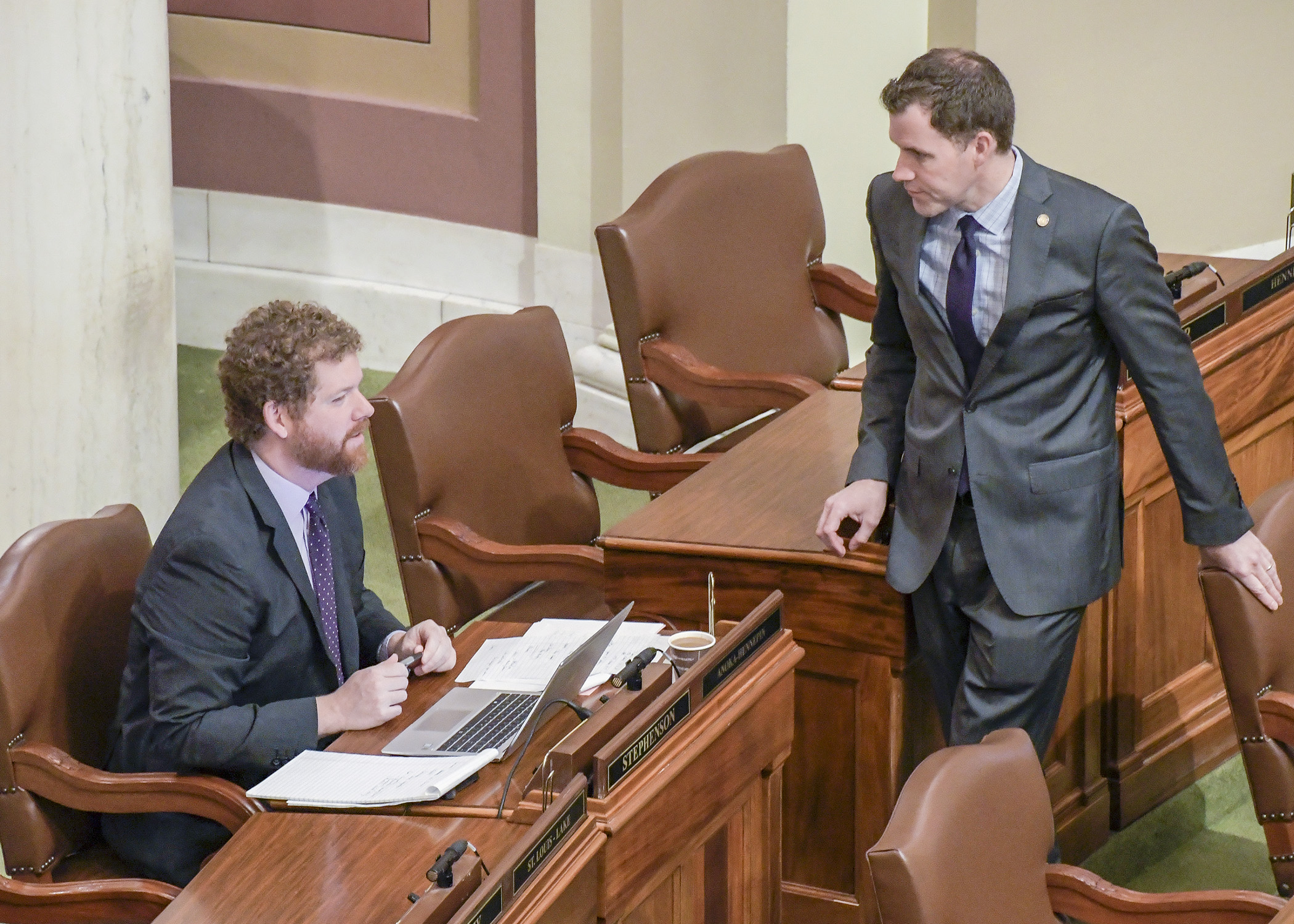After drawn-out debate, House OKs commerce, energy legislation without extension of reinsurance program

This special session’s first bill up for floor debate last Thursday was the omnibus commerce, climate and energy finance and policy bill. Four days later, it finally passed.
Sponsored by Rep. Zack Stephenson (DFL-Coon Rapids), SSHF6 is a compromise forged by a House and Senate commerce and energy working group. The bill contains provisions that relate to the financing and operations of the Commerce Department, as well as deciding how funds from the Renewable Development Account will be divvied up.
Passed, as amended, on a 70-60 vote, it now heads to the Senate, where Sen. Gary Dahms (R-Redwood Falls) is the sponsor.
On the commerce side, the bill would, among other things, establish a student loan borrowers’ bill of rights, create a catalytic converter theft prevention pilot project and a toxic toy enforcement program, and increase licensing and regulation of pharmacy benefit managers.
In the energy area, it would extend the cold weather rule period when utilities may not disconnect customers, establish an advisory committee to develop a statewide energy transition plan, and establish an energy transition office to assist communities and workers experiencing the retirement of an electric generating plant.
The bill includes some outlays for the current fiscal year and would have a total impact on the General Fund for fiscal years ’21-’23 of $84.9 million.
The bill would also disburse $103 million over the same period from the Renewable Development Account, a state-administered fund designed expressly for the purpose of developing renewable energy sources in Minnesota. Xcel Energy pays into it with annual fees of between $350,000 and $500,000 for each cask of nuclear waste it stores at its Prairie Island and Monticello facilities.
[More: See bill details and view the spreadsheet]
Of the 20 amendments debated, only one passed, a Stephenson amendment to correct an expiration date. Other amendment topics ranged from ensuring solar panels aren’t created with the use of child or slave labor to exempting natural gas utilities from greenhouse gas emissions goals.
Rep. Jamie Long (DFL-Mpls), chair of the House Climate and Energy Finance and Policy Committee, said the House lost “a lot of important pieces” in negotiations with the Senate. But he praised several provisions in the final bill, including “Solar on Schools,” an efficient technology accelerator, the natural gas innovation act, and a North Minneapolis clean energy training center.
“We aren’t moving fast enough yet, but this bill takes important steps,” Long said.
“Too many of the provisions in this bill dropped out of the sky,” said Rep. Glenn Gruenhagen (R-Glencoe), referring to them not appearing in either the House or Senate omnibus bills.
A topic that stimulated much debate was extending the state’s health reinsurance program, which would sunset under the bill’s language. That program, the Minnesota Premium Security Plan, is designed to provide stabilizing secondary insurance for health plans offering individual insurance policies in the state.
House Minority Leader Kurt Daudt (R-Crown) identified the continuation of the reinsurance program as one of five priorities that House Republicans want to have satisfied before the special session ends.
Related Articles
Search Session Daily
Advanced Search OptionsPriority Dailies
Speaker Emerita Melissa Hortman, husband killed in attack
By HPIS Staff House Speaker Emerita Melissa Hortman (DFL-Brooklyn Park) and her husband, Mark, were fatally shot in their home early Saturday morning.
Gov. Tim Walz announced the news dur...
House Speaker Emerita Melissa Hortman (DFL-Brooklyn Park) and her husband, Mark, were fatally shot in their home early Saturday morning.
Gov. Tim Walz announced the news dur...
Lawmakers deliver budget bills to governor's desk in one-day special session
By Mike Cook About that talk of needing all 21 hours left in a legislative day to complete a special session?
House members were more than up to the challenge Monday. Beginning at 10 a.m...
About that talk of needing all 21 hours left in a legislative day to complete a special session?
House members were more than up to the challenge Monday. Beginning at 10 a.m...